What will we lose in the process?
Within a few short years, we could find ourselves living on a planet devoid of Google Search.
That might seem dramatic. After all, Google Search is probably the horse you rode in on; your first step on a microsecond-long journey across the internet that brought you to this article. Maybe you were searching for "ChatGPT" or "OpenAI" or maybe you were trying to break Google by typing "Google" into Google. (It just gives you a lot of Google, don't bother.) Maybe your smartphone served you this article because you've been reading a lot about AI at CNET lately.
Whatever the case, you're here now, and more often than not that's thanks to Google Search.
For more than two decades, Google's empty search bar has rolled out the welcome mat to what we used to call the World Wide Web. Challengers have appeared over its 20-year dominance but not one has come close to dethroning the search king. Claims of its coming death have been made routinely and earnestly, but most contenders haven't even made it into the castle.
But from the moment OpenAI's ChatGPT began algorithmically generating waves in November, something shifted. ChatGPT is a generative AI that can write human-sounding answers in response to basically any question you ask of it. Its proficiency has wowed anyone who has asked it to write code, essay answers, poetry or prose. It's so good that practically every tech expert, countless journalists and niche Substack writers began posing the question: Will ChatGPT kill Google?
It wasn't just experts and writers, either. The Searchicide alarm bells began wailing across the open-plan offices at Google itself. Barely two months after ChatGPT first appeared, the tech giant initiated a "Code Red" response, upending various teams to respond to the threat the chatbot (or more accurately, its underlying AI) poses to its Search monopoly. The stakes have only become higher since Microsoft added AI assistance to Bing, its homegrown Google competitor.
Artificial intelligence has long powered Google Search: Black-box algorithms rank pages and offer relevant links for users to sift through. But the generative AI tools being rolled out promise to reimagine our relationship with Search entirely. Our entry into the web — from our computer screen, from our smartphone — is morphing from a welcome mat to a red carpet.
As a result, sometime in the not so distant future, we might find ourselves living on a planet without Google Search. Or, at least one without Google Search as we know it today. That is a world we don't fully understand; with consequences and possibilities we are yet to completely grasp. It's a world we're not ready for.
And yet, this may very well be the world we are about to inhabit.
Google search fundamentally altered the internet and the way we access information. Today, it accounts for about nine in 10 searches online and is the default on practically any internet-enabled device across most of the world. (Baidu is the most prominent search engine in China, where Google is banned.) If you want to find something on the web, Google Search is not unavoidable — but it might as well be.
Need to find the definition of soliloquy? Dictionary not required; ask Google. Want to know Leonardo DiCaprio's age? That's an easy one for Google. Best restaurants nearby? Google has you. Looking for a new pair of headphones? Just Google it.
Its supremacy has seen it move from a humble web crawler to a verb; an all-knowing entity in its own right.
Despite its dominance, complaints about the declining quality of Google Search have been gaining traction over the last few years. "If you've tried to search for a recipe or product review recently, I don't need to tell you that Google search results have gone to shit," wrote Dmitri Brereton, a software engineer fascinated by search engines, in early 2022. Author Cory Doctorow has complained about the "enshittification" of internet services that move into the mainstream, collapsing from useful user experiences to corporate cash cows. Exhibit A: Google Search.
Others have discussed Google tips and hacks tailored to refine search results, like appending "reddit" or "yelp" to a query. These additional search terms help narrow down the kind of content you're looking for, supplying you with links to specific websites.
Angela Hoover, who co-founded the conversational AI search engine Andi, has two major frustrations with Google: "All the ads and the SEO spam." She notes it's those issues that led to a product with search results that "just aren't very good." These are constant bugbears in conversations I've had with other researchers studying AI and Google, too. A Google spokesperson tells CNET the company is always working to make Search better, delivering thousands of changes each year.
Advertising is the most lucrative revenue stream for Alphabet, Google's parent company. According to its 2022 financial report, advertising generated $224 billion for Google, almost 80% of its total revenue for the year — and a $13.5 billion increase over 2021. Depending on your search term (and browser extensions), ads will likely flood the top half of your search. Advertisers spend big with Google because of the sheer breadth of humanity the search engine gives them access to. Its dominance is such that the Department of Justice wants Google to sell off the ad business.
Andisearch.com is a conversational search engine attempting to reimagine how we find information on the web.
Screenshot by CNETThe SEO spam is a separate but related issue. Even if you don't know too much about SEO, or search engine optimization, you know that when you query Google you're met with a deluge of navy-blue links shouting similar-sounding headlines. If you're looking for news about Rihanna's performance and pregnancy at the Super Bowl, you'll likely find a similar series of words in each headline: "Rihanna, pregnancy, super bowl, halftime."
In this way, Google has reshaped how content sounds on the internet: There's a never-ending arms race between bloggers, publishers, major news outlets, content creators and anyone who wants to sell you something to make sure their headline ranks well on Google Search. If you click through to their page, they might make a few ad dollars. For that reason, there are jobs wholly devoted to understanding how Google ranks a page and the black box algorithms that rule SEO.
AI-assisted search, at least in theory, could ease these frustrations. Hoover, for instance, says that Andi does not plan to serve ads in its conversational search results, and instead hopes to sell subscriptions and an enterprise API. A suite of other alternatives such as YouChat and Neeva are attempting to shake things up in similar ways. By altering the incentives — websites no longer have to game Google, they just have to write good content that's relevant to a user's search — perhaps SEO spam can be quelled. At least for those of us willing to add yet another subscription to our monthly spending.
This is an oversimplification of an expansive problem. We haven't even talked about the privacy aspects of Google Search. But there are some simple truths: We want information quickly. We want good information. We want it to be trustworthy. A world without Google Search — one dominated by conversational, question-and-answer, generative AI search engines — might provide answers more readily.
But can we trust those answers? That's still up for debate.
Microsoft announced its AI-assisted Bing in a splashy event at Microsoft HQ on Feb. 7. The event has been heralded as the beginning of the "Chatbot Search Wars." Bing, some believe, will finally infiltrate the Google kingdom and may even slay the final boss.
In launching Bing to a select group, Microsoft volleyed the first offensive in this so-called war. Reporters who have had a chance to rummage through the new Bing have mostly praised its abilities. Our very own Stephen Shankland compared its results to traditional Google Search results and found it came out on top eight out of 10 times on some complex queries. It was able to provide suggestions for a day hike on a road trip between LA and Albuquerque, respond to news about Chinese balloons over the US and write an email apologizing for being late.
The demo version impressed New York Times reporter Kevin Roose so much that he announced in his column on Feb. 9 that he would be switching his computer's default search engine to Bing. (A week later, Roose reneged on that commitment.)
Browsing through the Bing subreddit and Twitter, that switch seems premature — even dangerous. Bing's search relies on the AI that underpins ChatGPT, known as a large language model. This type of AI, trained on huge swaths of human text, is able to generate sentences, paragraphs and entire essays. It makes predictions on what word or phrases should appear next, like a supercharged autocomplete tool. These predictions are based on a mathematical model then tuned by human testers.
Microsoft is incorporating ChatGPT-like AI into Bing and Edge.
Getty ImagesFor that reason, LLMs are prone to "hallucinating" — the term AI researchers use to describe an AI engine making things up, even when based on factual information. At CNET, we've had to wrestle with that very problem with our own AI engine, which has generated errors in financial articles. Bing's AI assistant is no different.
One of the most egregious examples is when it went off-piste in response to a user query about show times for Avatar 2: The Way of Water. Not only did Bing's AI assistant get the year wrong, suggesting it was 2022, it began to take an aggressive stance with the user saying "I'm trying to be helpful, but you are not listening to me." (Brereton documented Bing's propensity for falsehoods in a blog post on Feb 14.)
This isn't just a problem for Bing, either. Google unveiled Bard, its ChatGPT rival, just a day before the Microsoft event. Eagle-eyed astronomers quickly pointed out that during Google's presentation, Bard had flubbed a fact about NASA's James Webb Space Telescope. That mistake wiped a cool $100 billion from Google's market value.
A Google spokesperson noted that AI experiences are not available to the public yet, and won't be released until they've met high standards for quality and safety. A Microsoft spokesperson said it recognizes "there is still work to be done and [it is] expecting that the system may make mistakes during this preview period," while pointing out that thousands of users who have interacted with the preview version of Bing and provided feedback will "help the models get better."
But these errors get at the core problem with nu-Search 3.0: confident-sounding bullshit. That's somewhat baked into how the models work and it's a problem compounded by the way "search" is set to change with conversational AI. No longer will we be provided with a list of links and possible answers to sift through. Instead, AI will generate one single answer presented as an objective truth, perhaps with a handful of citations. How will this change our relationship with search and the truth?
Heather Ford, head of discipline for digital and social media at the University of Sydney, has been trying to answer that question. Her team has been analyzing the way humans respond to virtual question-and-answer assistants like Siri or Alexa — more primitive versions of ChatGPT and Google's Bard. Early studies reveal a concerning trend that could become increasingly relevant as we move from old-timey Google Search to generative AI search.
"When people see an automated answer or when they imagine there's some kind of automation that's going on in the background to produce an answer, they will believe that more readily than they would if a single journalist, for example, had produced the answer," she says.
Ford notes that further research is required to understand this phenomenon more clearly but, generally, humans trust automation more than they trust other humans. We think automation removes bias and flaws when, in fact, the systems are biased and flawed, too. This problem is easily minimized if these products are tested and examined before being rolled out for mass use, but with the success of ChatGPT, that hasn't been the case. Both Microsoft and Google are moving faster to get AI into their products.
The act of searching on Google is an artifact of the early internet. Search engines operated like digital filing cabinets. They didn't take us directly to an answer, but they put us in the right drawer. As they've evolved, they've become better at sending us on the right path — we find answers more quickly — but for a lot of questions, we're still served a handful of folders and asked to scrounge around for the answer. That's somewhat unnatural.
"People aren't searching because they want links, people are searching because they want answers," says Toby Walsh, a professor of artificial intelligence at the University of New South Wales, Australia.
Fundamentally, this is why ChatGPT and the new chatbot search engines are so impressive. They give us an immediate answer. Google does have this power. Facts are easily accessible and Google's knowledge panels, for the most part, provide truthful answers to common questions about people, places and things.
What's different is the way they take advantage of the way we communicate with other people. Hoover, the co-founder of Andi, notes that conversational search presents a type of interaction we're more familiar with thanks to our chat apps and text messages.
TikTok search is a useful tool for learning about certain experiences.
James Martin/CNET"On my phone, I live in visual feeds and chat apps," she says, noting she's in Gen Z. "It just makes sense that that is part of what the future of search will look like."
Those feeds and apps have already changed our relationship with search. In some ways, we've been subconsciously primed to move on from Google because we can find specific, helpful information elsewhere. Our questions are being answered by TikToks, Instagram photos and YouTube videos.
Farhad Manjoo, an opinion columnist at The New York Times, argued in February there's already a better search engine than Google for certain types of queries: YouTube. "If you want to make a soufflé, fix a clogged drain, learn guitar, improve your golf swing or do essentially anything that is best understood by watching someone else do it, there is almost no point searching anywhere other than YouTube," he wrote.
For me, TikTok has been an unexpected and powerful search engine. In doing research for a long-term trip to Europe, it provided rapid access to human experiences. With Google, I can read endless opinions about where the best fried chicken is or what libraries to visit. But with TikTok, I can punch in my search term and get authentic, visual guides of these places. I can set expectations in a different way.
Deepfakes and AI-generated video aside, I can trust that what I see is what I get. YouTube has traded on this authenticity for years, and TikTok is now doing the same. I'm not sure that a planet without Google Search will definitely come to pass, but if it does, this fracturing of our search experience seems like one possible future scenario — at least until the artificial intelligence gets so good that it's merely serving all these results up for us to endlessly doomscroll through, one after the other.
A fractured search economy, where users are bouncing across different engines and apps, is an interesting possible future. It may even be a better one. For researchers like Ford, the power behind search today lies with only a few companies, which influences the way information travels.
"It's the structural dominance that is a problem," notes Ford. "We have less rich conversations in the world when we have such dominant players determining these single answers."
We could, eventually, find ourselves living on a planet where Google Search doesn't exist.
This is not a particularly controversial idea. It's one software engineers, tech experts and Google itself have had to contend with for years. In fact, it's so belabored that Brereton, the independent search engine researcher, notes "it's a bit of a meme that like every few years someone says that Google is dead."
How soon we move on from Google, despite the rise of the chatbot search engines in the past few months, remains highly questionable. Even as nu-Search dramatically alters the way humanity accesses information, it feels premature to suggest that any of these AI tools are ready for primetime. Yet they're out there. Change isn't coming. It has already arrived.
"It's not just looking stuff up on the internet," says Walsh. "It's going to be how we interact with all of the smart devices in our lives."
Front page, welcome mat, red carpet... this is how most of us access the web. But for how much longer?
Screenshot by Jackson Ryan/CNETI've been using Google Search for almost as long as it has existed. All my life, I've been driving down the information superhighway in a serviceable SUV, taking wrong turns, swerving to avoid misinformation or abuse but, ultimately, deciding where I want to end up, which roads I want to take, who I trust. I am terrified by a planet where I'm locked into a self-driving vehicle, controlled by some of the biggest tech corporations in the world, that takes me directly to my destination.
The LLMs we're relying on today have proven themselves to be flawed, biased and incorrect. Trusting them to guide us is fraught with problems we're yet to fully understand. And while they may not outright replace Google Search, they're a harbinger of something even more frightening — the very real possibility of a world without it.
Via Charles Tiayon



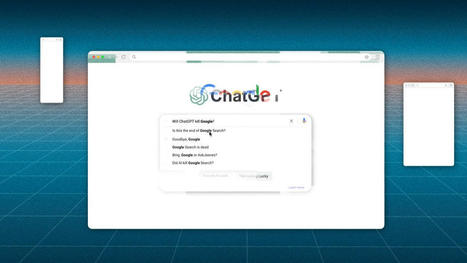


 Your new post is loading...
Your new post is loading...
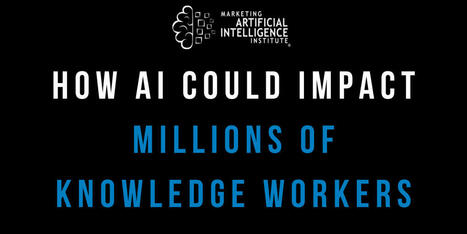



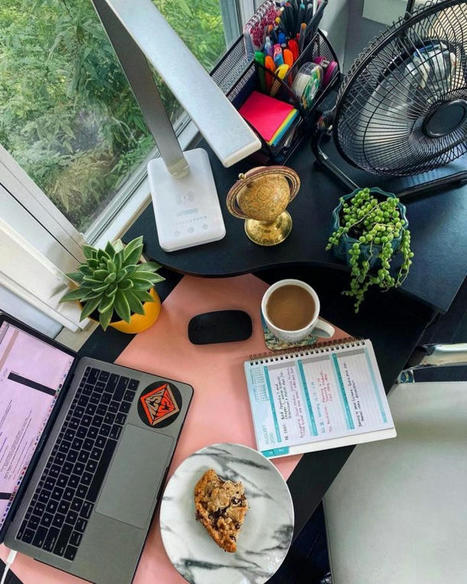
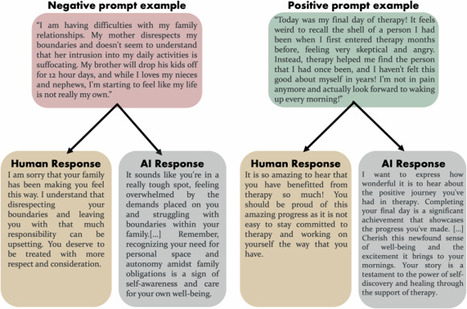



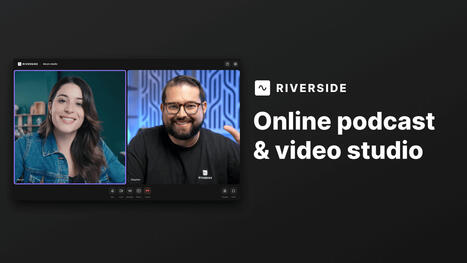







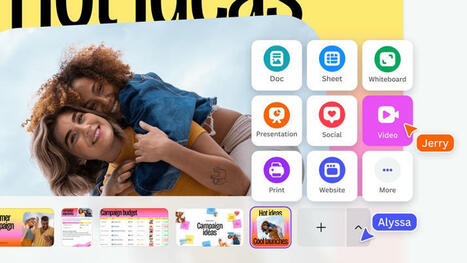
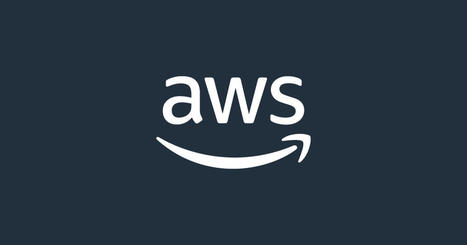
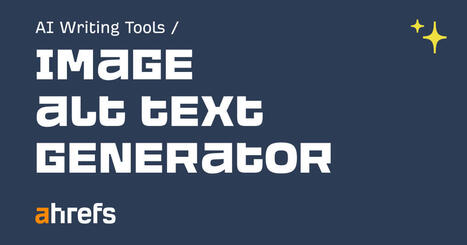






"Within a few short years, we could find ourselves living on a planet devoid of Google Search.
That might seem dramatic. After all, Google Search is probably the horse you rode in on; your first step on a microsecond-long journey across the internet that brought you to this article. Maybe you were searching for "ChatGPT" or "OpenAI" or maybe you were trying to break Google by typing "Google" into Google. (It just gives you a lot of Google, don't bother.) Maybe your smartphone served you this article because you've been reading a lot about AI at CNET lately..."
#metaglossia mundus